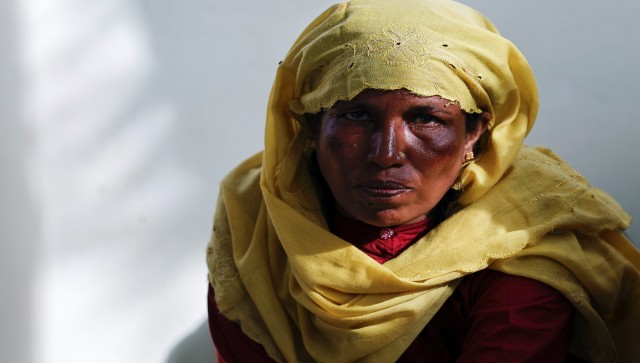No position is 100 per cent safe, whether in business or in politics. Just ask the Junta in Myanmar. In 2021, they toppled the democratically elected government. And since then, they have been invincible, crushing dissent, jailing the opposition, and driving out insurgents. But maybe not for long, because Myanmar’s Junta is facing an all-out civil war. It is like the avengers of resistance. There are multiple ethnic insurgent armies, pro-democracy activists, and anti-Junta politicians; all of them have banded together. They are taking the fight to the military regime.
This weekend saw some of the most violent clashes. The insurgents say the army is dropping gas bombs on them. Basically, chemical weapons. Though there is no proof to back this claim, it’s clear the Junta is spooked. The fighting broke out late last month; it began in the northeastern State of Shan, but since then, it has spread to Chin State in the west and Kayah State in the east. And in Rakhine State, also in the west, the progress has been stunning. Entire military units have surrendered without a fight. Some reports say 50 per cent of Myanmar is under rebel control. If true, that’s a massive victory, but this success has come at a cost, and that’s civilians. Around 26 thousand people have been displaced in Rakhine State. Many have also fled to India. “My house was completely burnt down and was damaged. We have lost everything. But we want to go back to the village and construct a new house,” said a 54-year-old refugee from Myanmar, Vunglianzing. “We have to fear this bombing. The peoples are (were) running in the rivers on the border. Yes. We have to fear, run. This bomb came on Sunday afternoon about 5:30 pm,” said a 22-year-old refugee from Myanmar, Lalriatfela. So another refugee crisis. ‘Another’ because Myanmar already has one, and they are Rohingya Muslims, who were persecuted and killed by the Myanmar Junta. More than one million of them had to flee. Today, they are a people without a state. Bangladesh hosts around 900 thousand of them, Pakistan: 350 thousand, Saudi Arabia: 200 thousand, India: 40 thousand, the UAE: 10 thousand, and Southeast Asia around 150 thousand, out of which – Malaysia is the largest host. Does the global community have a plan for the Rohingyas? Not from the looks of it. Most of them stay in shelters or camps, where living conditions are horrible. Opportunities are few, and their future is bleak. So what do the refugees do? Many of them try to flee elsewhere. On Sunday, 500 Rohingyas tried to land in Indonesia’s Aceh province. It was the fifth such attempt in one week. Their voyages are fraught with risks. The boats are of poor quality. The weather can be bad. And the sea is unforgiving. Yet, hundreds of Rohingyas have made the journey. Most of them set sail from Bangladesh. “The Bangladesh government helped us by giving rations and food, but there is no security of life there. That’s why we decided to come here as Indonesia is a good muslim country,” said Musyur Husen, a Rohingya refugee. “We came here with our children knowing that we might die, or we might survive in our own way. We came with the hope that we can educate our children here,” he said further. Just one problem though, Indonesia doesn’t seem to want them. Aceh province has its own history of violence, the locals understand what the Rohingyas are going through, at the same time, there are concerns like how resources will be used up, or how refugee camps could create social tensions. “We did not mean to refuse them, but the place here is not conducive. The facilities are very limited. The community is hesitant to accept them because it’s likely that the refugees will stay here for a long time, and the community is unable to provide logistics [for that long],” said Aswadi, a 53-year old local fisherman. That’s the issue everywhere, the logistics, the resources, and of course, the sentiments. Even India grappled with the same issues. Last year, there was talk of India deporting the Rohingyas back to Myanmar. It triggered a lot of backlash. So in the end, the proposal was shelved. But clearly, this is not a long term solution. The Rohingyas deserve to live in their homeland. That’s not India. That’s not Bangladesh. That’s Myanmar. But what have Muslim nations done to achieve that? Statements at every summit, beyond that nothing. No lobbying at global organisations. No endless supplies of aid. At least not the kind we are seeing for Gaza. It tells you what the priority is. The question is, will the current fighting help the Rohingyas return eventually? We cannot count on it. Myanmar’s last democratically elected leader was Aung San Suu Kyi, and she defended the Rohingya genocide at an international court. So don’t hope for much. Views expressed in the above piece are personal and solely those of the author. They do not necessarily reflect Firstpost_’s views._ Read all the Latest News , Trending News , Cricket News , Bollywood News , India News and Entertainment News here. Follow us on Facebook, Twitter and Instagram.


)

)
)
)
)
)
)
)
)



